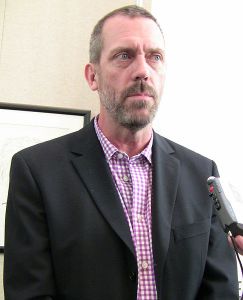 Big Love, the HBO series about a group of Mormon polygamists, is not the only television series that has dealt with the issue of online ordination lately. Yet another popular series that has dealt with the issue is the medical drama House. The show highlights the common concern many still have over the legality of online ordinations but while some roadblocks still exist in a handful of jurisdictions, the practice is perfectly legitimate in the overwhelming majority of U.S. states. Indeed, this fact opens up doors for ministers to solemnize marriages others in their community might frown upon.
Big Love, the HBO series about a group of Mormon polygamists, is not the only television series that has dealt with the issue of online ordination lately. Yet another popular series that has dealt with the issue is the medical drama House. The show highlights the common concern many still have over the legality of online ordinations but while some roadblocks still exist in a handful of jurisdictions, the practice is perfectly legitimate in the overwhelming majority of U.S. states. Indeed, this fact opens up doors for ministers to solemnize marriages others in their community might frown upon.
The series' lead character is Dr. Gregory House, stern and eccentric yet brilliant surgeon surrounded by a coterie of diagnosticians at a fictional teaching hospital in New Jersey. In the episode "Fall from Grace", one of Dr. House's diagnosticians, Dr. Robert Chase, decides to get ordained online and join an online church in order to perform a wedding ceremony for Dr. House and his fiancée, Dominika, in his apartment.
Apparently the marriage is one of convenience: Dominika marries the doctor so that she can get a green card, and the doctor marries her so that she can work almost as a sort of secretary or housekeeper to take care of his day-to-day needs. Meanwhile, three of Dr. House's colleagues attend the ceremony to serve as witnesses while bride and groom exchange wedding vows. At one point Dominika says to her new husband that she likes him even though theirs is a marriage of convenience, and he responds that he likes her too, but that he does not sleep with "married women". The suggestion is that because the marriage is not being consummated, it may not in fact be legal.
In both series, a character decides to become a pastor in an internet church in order to solemnize a union which might earn the disapproval of the general population; however, in both cases the practice is portrayed in a slightly negative light, as though getting married by friends and family deserves the utmost suspicion. On TV, such weddings involve either polygamy, some immigrant trying to get into the country, or whatever else the writers can come up with. The benefits of online ordination are overlooked.
However, unlike the casual marriage of convenience depicted in House, weddings officiated by ministers ordained online are often serious and deeply solemn affairs precisely because the minister has become ordained online. This is something we have discussed before on the ULS Monastery blog, but it always helps to emphasize the point that it is not necessarily the unorthodox wedding that cheapens the sacrament of holy matrimony. In a sense, traditional wedding ceremonies hold less depth and meaning, since the presiding minister is usually a stranger having no personal interest in bride and groom; on the contrary, modern wedding ceremonies performed by friends and family hold particular relevance and meaning, since the minister does have a personal interest in bride and groom. Moreover, the fact that some people will go so far as to have their friends or relatives marry them surely attests to their love for one another despite race, sex, or creed.
Of course, as stated previously in our blog on Big Love, online ordination is receiving more exposure on popular television dramas, for better or worse. Hopefully in the future one of these programs will touch on the benefits of online ordination, which, for the Universal Life Church Monastery, is a sacerdotal right of every human being, since every human being, the Church believes, has the capacity for spiritual wisdom regardless of formal training. What do you think about the exposure of online ordination in the media? Does it paint a fair picture of the practice? What benefits has it offered you?
Source:
Daemon's TV


0 comments